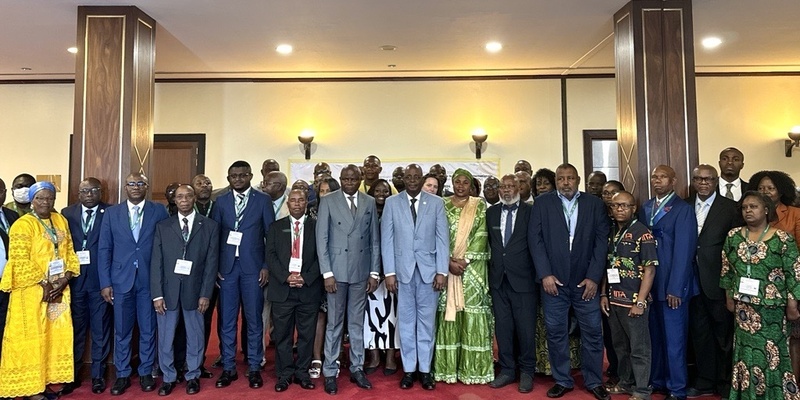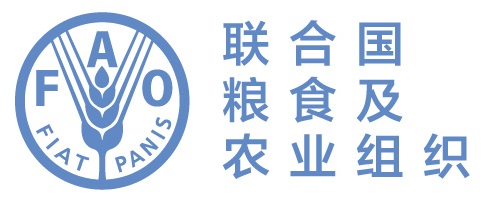数字技术助力植物健康与贸易:国际植物保护公约(IPPC)非洲区域研讨会
Posted on Thu, 22 Aug 2024, 10:06

©粮农组织/ Hyacine Kacou-Amondji
金沙萨,2024 年 8 月 20 日。国际植物保护公约(下称“IPPC”)非洲地区年度区域研讨会在刚果民主共和国金沙萨拉开帷幕。该研讨会旨在建设植物检疫能力,提高各方对所有IPPC相关活动的认识,并促进地区层面的经验交流,以最终扩大地区和国际合作。世界其他地区也在举办类似的研讨会,以促进各大洲采取统一、有效的植检措施。本年度各区域研讨会由 IPPC 秘书处组织筹办,各区域植物保护组织 (RPPO)、联合国粮食及农业组织(下称“粮农组织”)区域和次区域办事处协办。本届非洲地区的研讨会由刚果民主共和国农业和粮食安全部主办。
此次为期四天的研讨会共有约五十名植物健康专家参加,他们来自各国家植物保护组织(NPPO)、IPPC缔约方和非缔约方,代表科特迪瓦、喀麦隆、马拉维、刚果民主共和国、肯尼亚、塞内加尔和塞拉利昂、南非等国出席。此外,IPPC 植物检疫措施委员会主席团、标准委员会、标准实施和能力建设委员会、美国农业部(USDA)动植物卫生检验署(APHIS)、南非斯泰伦博斯大学、国际热带农业研究所(IITA)、世界医师协会(Médecins du Monde)、粮农组织和 IPPC 秘书处也派代表出席了会议。
会议将围绕今年的主题——“植物健康、安全贸易和数字技术 ——开展。会上将优先讨论当前面临的和新出现的植物健康挑战,重点关注提交区域磋商的新 IPPC 标准和指南草案,并着重谈及为实施能力建设计划所作出的努力。上述讨论对于加强地区植物资源保护和安全贸易促进工作至关重要。
“有害生物无国界。因此,区域合作至关重要。要防止有害生物引入世界各地区并四散传播,国际植物检疫措施标准(ISPM)必不可少。各国还可借助相关标准在国际植物及植物产品贸易中合理使用某些措施。” IPPC秘书长 Osama El-Lissy如是说道。
保障植物健康对于保护农作物、确保无害虫贸易、维持非洲农业生产者生计、促进全球经济增长至关重要。
此次在金沙萨举办的研讨会为植物健康专家提供了一个宝贵的见面机会,共享知识,加强非洲国家间合作,以改进其植物保护体系,消除新兴有害生物威胁。
刚果民主共和国农业和粮食安全部部长 Grégoire Mutshayi 表示:“为应对持续蔓延的植物病害,我们应共同努力,采用一整套行之有效的方法和工具,通过加强灾害预防、完善早期预警机制、提升备灾能力、优化危机管理并采用推荐做法,有效提升粮食安全水平,切实保障人民生命安全。”
粮农组织驻刚果民主共和国代表Aristide Ongone Obame表示:“要避免本地区国家暴发紧急有害生物灾害时采取代价高昂的根除和管控措施,就必须遵守国际植物检疫标准。”IPPC 非洲区域研讨会期间将安排技术会议和实地考察,让与会者与植物健康专家直接接触,共同探讨切实可行的解决方案。
会上,与会者将讨论非洲地区特别关注的植物健康问题,如香蕉束顶病毒(BBTV)和香蕉镰刀菌 TR4。他们还将讨论 IPPC“非洲植物检疫计划” (下称“APP计划”) 和 IPPC ePhyto 解决方案的实施进展,并就相关话题分享经验。“APP计划”为地理空间信息系统(GIS)提供培训及数字工具资源,通过加强各国家植物保护组织(NPPO)能力来强化非洲各国的植检系统。“APP计划”试点阶段涉及以下非洲十一国:喀麦隆、刚果民主共和国、埃及、几内亚比绍、肯尼亚、马里、摩洛哥、塞拉利昂、乌干达、赞比亚和津巴布韦。
本文最初由粮农组织驻刚果民主共和国代表处刊登。

